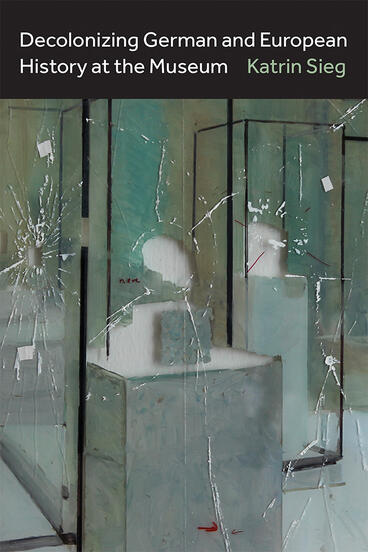Decolonizing German and European History at the Museum
How do museums confront the violence of European colonialism, conquest, dispossession, enslavement, and genocide?
Description
Decolonizing German and European History at the Museum examines efforts by European museums to investigate colonialism as part of an unprocessed past, confront its presence, and urge repair. A flurry of exhibitions and the overhaul of numerous large museums in the last decade signal that an emergent colonial memory culture is now reaching broader publics. Exhibitions pose the question of what Europeans owe to those they colonized.
Decolonizing German and European History at the Museum shows how museums can help visitors mourn historic violence and identify the contemporary agents, beneficiaries, victims, survivors, and resisters of colonial presence. At the same time, the book treats the museum as part of the racialized power relations that activists, academics, and artists have long protested against. This book asks whether museums have made the dream of activists, academics, and artists to build equitable futures more acceptable and more durable—or whether in packaging that dream for general audiences they curtail it. Confronting colonial violence, this book argues, pushes Europeans to face the histories of racism and urges them to envision antiracism at the global scale.
Katrin Sieg is Graf Goltz Professor and Director of the BMW Center for German and European Studies at Georgetown University.
Reviews
“This book is Katrin Sieg’s latest tour de force whereby the museum represents a radically cosmopolitan space for re-evaluating German postcolonial consciousness in the current transatlantic reckoning with decolonization. It deepens readers’ understanding of what the national or universal museum has done since the nineteenth century to uphold the universalist heritage of white supremacy and colonial violence, and it supplements this perverse desire with the transformative action of artists, activists, and curators today.”
- David D. Kim
—David D. Kim, University of California, Los Angeles
“In the current political climate, with fascism seemingly in the ascendant and openly racist behavior on the rise, museums that contend with the racism and violence of the past are crucial; they have the potential to be powerful partners in combating contemporary racism through education. This gripping, well-written, and eminently readable book provides crucial insight into how museums have chosen to design exhibitions on colonialism.”
- Sara Pugach
— Sara Pugach, California State University, Los Angeles
"An excellent work of critical scholarship."
- CHOICE
—CHOICE
"This rich and stimulating study balances hugely informative contextualizations with illuminating discussions of specific exhibitions: Sieg's attention to gesture and posture yields especially insightful observations. It presents a significant amount of information—historical, theoretical, and analytical—in an admirably clear and accessible way, making this book an extremely important intervention in the fields of memory studies, museum studies, and decolonisation, but also a highly informative point of entry into current debates on sovereignty, cosmopolitanism, colonialism, and the politics of memory in the German and European context."
- Dora Osborne
—Monatshefte
"Sieg’s book nonetheless offers a cogent analysis of the role of the history museum that places colonialism, race, and racism at the center of the analysis rather than the periphery. . . With the GHM now closed for a much-needed updating of its permanent collection, it remains to be seen whether what reopens in 2025 will reflect Sieg’s hopeful vision for what a history museum can do."
- The German Quarterly, Maureen O. Gallagher

